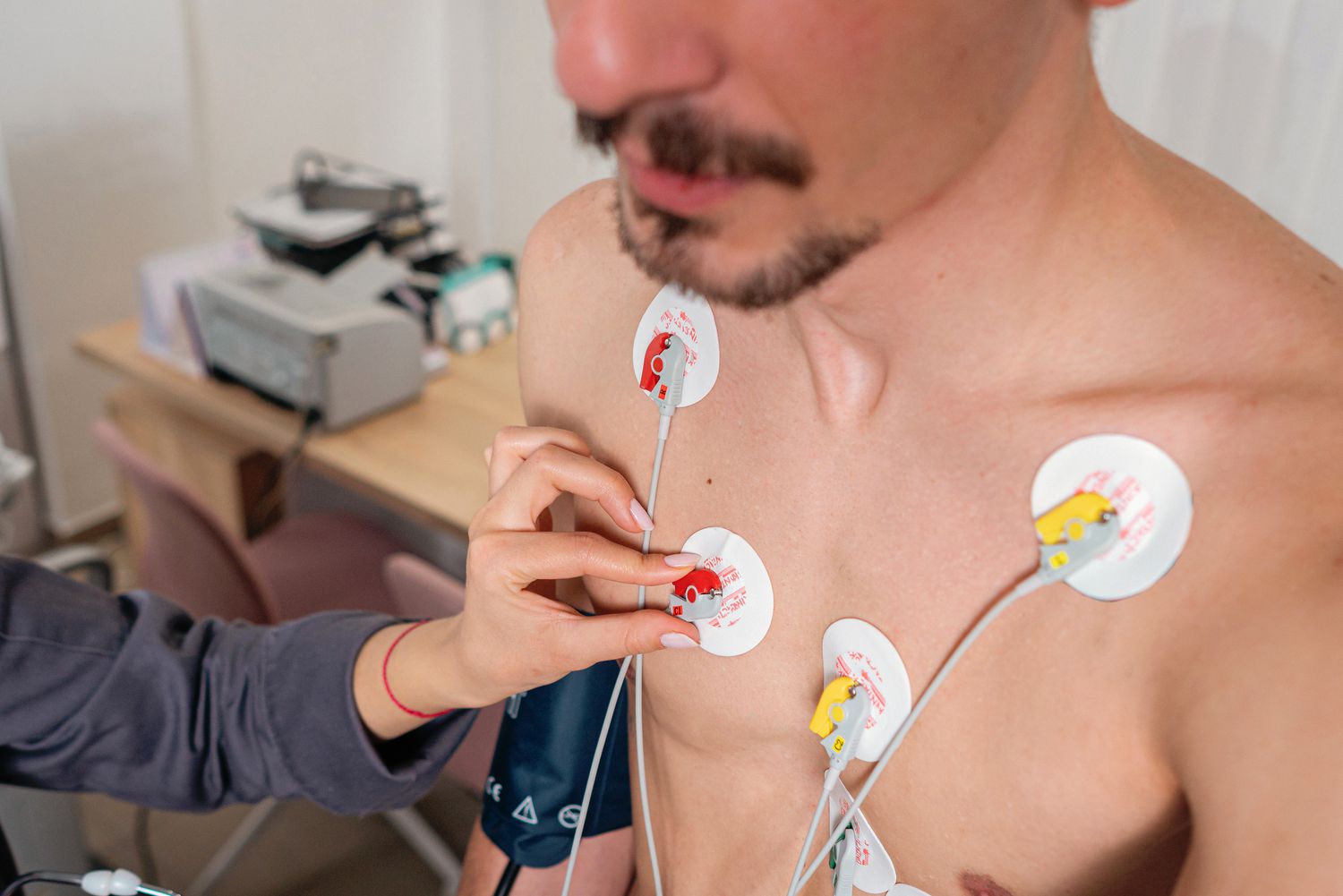
Ever wondered how doctors check your heart's rhythm? They use an electrocardiograph (ECG or EKG). This amazing device records the electrical activity of your heart, helping doctors detect heart problems. Invented in the early 1900s, the ECG has become a crucial tool in modern medicine. It’s quick, painless, and provides vital information about your heart's health. Whether you’re feeling fine or experiencing symptoms like chest pain or palpitations, an ECG can offer insights into what's happening inside your chest. Ready to learn more? Here are 31 fascinating facts about this life-saving technology.
What is an Electrocardiograph?
An electrocardiograph (ECG or EKG) is a medical device used to record the electrical activity of the heart over a period of time. This tool is crucial for diagnosing various heart conditions.
- ECG stands for Electrocardiogram in English, while EKG is derived from the German word Elektrokardiogramm.
- The first practical ECG machine was invented by Willem Einthoven in 1903.
- Einthoven received the Nobel Prize in Physiology or Medicine in 1924 for his work on the ECG.
How Does an ECG Work?
Understanding the mechanics of an ECG can help demystify its importance in medical diagnostics.
- An ECG measures the electrical impulses generated by the heart.
- Electrodes are placed on the skin to detect these impulses.
- The data collected is displayed as waves on a monitor or printed on paper.
- Each wave represents a different phase of the heart's electrical cycle.
Types of ECG Tests
Different types of ECG tests are used depending on the patient's condition and the information needed.
- A resting ECG is performed while the patient is lying down.
- A stress test involves recording the ECG while the patient exercises.
- A Holter monitor is a portable device worn for 24-48 hours to record continuous ECG data.
Importance of ECG in Diagnosing Heart Conditions
ECGs are vital for diagnosing a variety of heart-related issues.
- They can detect arrhythmias, which are irregular heartbeats.
- ECGs help identify myocardial infarctions (heart attacks).
- They can reveal ischemia, a condition where the heart muscle doesn't get enough oxygen.
- ECGs are used to monitor the effectiveness of medications for heart conditions.
Components of an ECG Wave
Each part of the ECG wave provides specific information about the heart's function.
- The P wave represents atrial depolarization.
- The QRS complex shows ventricular depolarization.
- The T wave indicates ventricular repolarization.
- The U wave is sometimes seen and represents late repolarization of the ventricles.
Common Abnormalities Detected by ECG
Recognizing abnormalities in an ECG can lead to early intervention and treatment.
- Bradycardia is a slower than normal heart rate.
- Tachycardia is a faster than normal heart rate.
- Atrial fibrillation is an irregular and often rapid heart rate.
- Ventricular fibrillation is a severe condition where the ventricles quiver instead of pumping blood.
ECG in Modern Medicine
The role of ECGs has evolved with advancements in technology.
- Modern ECG machines are digital and can store data electronically.
- Wireless ECG devices allow for remote monitoring.
- Smartwatches and fitness trackers now include ECG functionality.
- Artificial intelligence is being used to analyze ECG data for more accurate diagnoses.
Preparing for an ECG Test
Proper preparation can ensure accurate results from an ECG test.
- Patients are usually advised to avoid caffeine and smoking before the test.
- It's important to relax and breathe normally during the test.
- Skin preparation may involve cleaning and shaving areas where electrodes will be placed.
Limitations of ECG
While ECGs are incredibly useful, they do have limitations.
- An ECG cannot detect all heart conditions.
- False positives and negatives can occur, necessitating further testing for accurate diagnosis.
The Heartbeat of Knowledge
Understanding electrocardiographs can be a game-changer for anyone interested in heart health. These devices, often called ECGs or EKGs, are essential for diagnosing various heart conditions. They measure the electrical activity of the heart, providing crucial data that can save lives. Knowing how they work, their history, and their importance in medical science gives you a deeper appreciation for this technology.
From their invention to their modern-day applications, ECGs have revolutionized cardiology. They help detect arrhythmias, heart attacks, and other cardiac issues early, allowing for timely intervention. Whether you're a medical professional, a student, or just curious, these facts offer valuable insights into a device that plays a vital role in healthcare.
So next time you see an ECG machine, you'll know it's not just a bunch of squiggly lines—it's a lifeline.
Was this page helpful?
Our commitment to delivering trustworthy and engaging content is at the heart of what we do. Each fact on our site is contributed by real users like you, bringing a wealth of diverse insights and information. To ensure the highest standards of accuracy and reliability, our dedicated editors meticulously review each submission. This process guarantees that the facts we share are not only fascinating but also credible. Trust in our commitment to quality and authenticity as you explore and learn with us.
